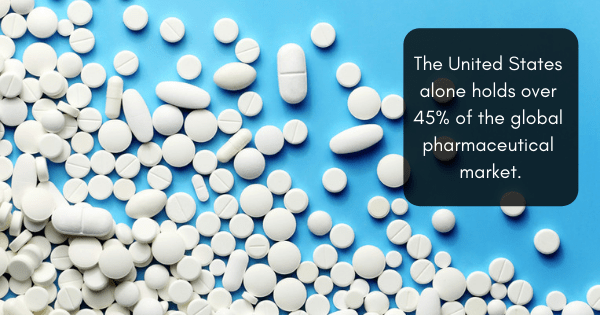

The U.S. is at the forefront of innovation when it comes to medicine. In fact, this great nation holds over 45% of the global pharmaceutical market. Because of this commitment to science and the advancement of health, new drugs and chemicals are constantly becoming available to the public.
However, these chemical concoctions must be run through the gamut to ensure they are safe to use and consume. There are a variety of GMP quality control steps and GMP synthesis standards in place to reduce the possibility of contamination (such as the many clean room standards), but the risks associated with chemical impurities are just as dangerous; let's take a look at five of them.
- Impurities: Impurities are defined as any component that is not the chemical entity of the new drug substance. These could be organic or inorganic in nature, and can even result from the degradation of the product. The risk here is that some impurities may be extremely toxic.
- Overdose: If a mistake occurs in the new drug substance that results in too many of a single chemical, the body may overdose. Even the most beneficial drugs can become harmful if too many are consumed; although overdose is rare, it is a danger of chemical impurities.
- Sterility: In parenteral products -- where the drug is injected directly into the bloodstream -- the bodies natural defenses are completely bypassed. Sterility has to do with contamination; because you're skipping these crucial opportunities for defense, a parenteral product that is not sterile could seriously harm the patient.
- Endotoxins: Endotoxins refer to toxins that are present inside a bacterial cell that get released when the cell breaks down. Historically speaking, exposure to endotoxins causes a wide spectrum of nonspecific pathophysiological reactions, such as fever, changes in white blood cell counts, hypotension, shock, and death.
- Particulates: In a new drug substances that is parenteral, the presence of particulates can be incredibly dangerous. Since having fibers, dust, rubber, and silicone pumping through your veins can cause a variety of negative side effects, ensuring that particulates are eliminated is essential.
Many people wonder, "how do chemical manufacturers assess purity?" At the end of the day, it's not how they do it, it's that they're doing it at all; because of the precautions established by GMP quality assurance procedures, knowing "how do chemical manufacturers assess purity" is irrelevant to your safety.
